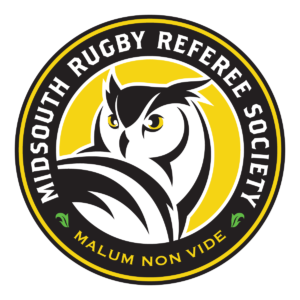REFEREE DEVELOPMENT
Each referee is ultimately responsible for his or her own development. The study of the laws and coaching materials, viewing of other referees on videotape and in person, obtaining constructive criticism from players, coaches, and other referees, about ones performance, and fitness maintenance are things that no one else can do. However, it is one of the goals of the Society to assist a referees quest for improvement. While occasional clinics are held, Lawbooks and coaching information are distributed, and critique sheets are made available to the referees, the primary focus is the individual coaching of the referee by the members of the MSRRS Development Committee. This Committee consists of the Chairman of the Society, the Referee Development Officier, Society Referee Coaches, and Society Evaluator.
There are three separate types of coaching and evaluation opportunities for referees within the Society. They are marked on the schedule as I = Informal (informal, oral only post match follow-up), C = Coaching (informal, oral report followed by brief written report), and E=Evaluation (USARFU Level 2 Evaluation). In addition to providing as many opportunities for coaching and evaluation within the Society, the MSRRS also sends referees through its exchange programs to other areas for outside evaluation, and occasionally brings territorial and national evaluators to the area. As a local society, the MSRRS is responsible for determining the grade of all junior referees from C-4 (entry level) through C-3, C-2, C-1, which is the highest grade a local society may bestow. Senior referees and B-panel grades are the responsibility of the territorial/geographic referee committee. National Panel are the responsibility of the national referee committee. Administrators in the MSRRS have attempted to comply with current efforts nationally for establishing and maintaining very high standards for community grades particularly that of C-1. No referee may carry the grade of C-1 unless they are a full time, fit, experienced, Level 2 certified by USA Rugby and a committed rugby referee.
Following are standards and descriptions of the various grade levels, adopted and modified from standards published by the USARFU Referees and Laws Committee:
I. General Comments
A. There will always be differences in style and ability between two referees, even those with the same grade. However, there are some general characteristics, which are expected to accompany each grade. These expectations become greater as a referee moves up through the ranks, as do the rewards.
B. Consistency becomes more and more important as the desired grade goes up. This is one of the most notable characteristics associated with higher levels of refereeing. To obtain higher grades a referee must be observed by more evaluators, at more matches, over a longer period of time. One good match in front of the evaluator is not going to be enough.
C. Experience goes hand-in-hand with on-field performance and consistency. The number of games a referee has done, and the period of time he has performed at the level above his current grade, will be considerations for his or her promotion to the next grade. At the higher grades, this time frame could be measured in years, rather than weeks, so ambition must usually be tempered with considerable patience. There is no substitute for experience.
D. Commitment becomes more noticeable as a referee moves up the ranks. It takes an effort on the part of an individual to improve his or her own game, learn the laws, watch and draw from senior referees. The referee will need to learn from those who observe him or her without always debating, get fitter, discuss the game with players, discuss “Grey areas” with other referees, attend clinics, and so on. Commitment means taking all assignments, and not just the choice ones. You should also be prepared to put something back into your local society in the form of administrative elbow grease, although this will not get you a better grade. In addition to the characteristics listed for each grade below, improvement of certain intangible qualities that a referee might possess may make the final difference in his promotion to the next level. This could simply be a matter of style, or it may involve some other subtle factor that an evaluator will recognize when he sees it, but be unable to define easily in so many words. Grades are not lifetime awards. They are meant to indicate the current level or standard of one’s refereeing. If a referee goes inactive for an extended period of time, or does not maintain his standard of refereeing (including fitness), his grade may be adjusted accordingly.
